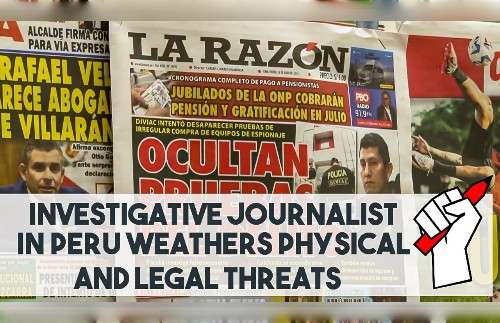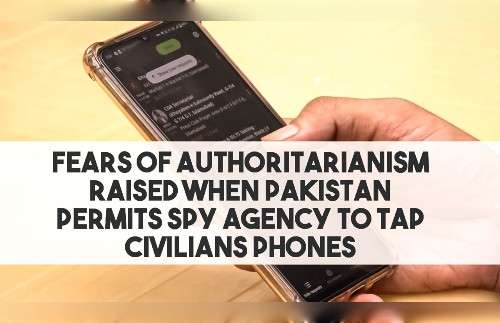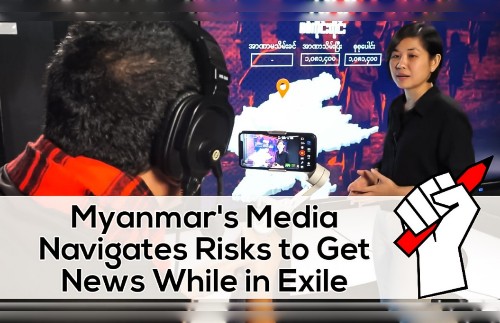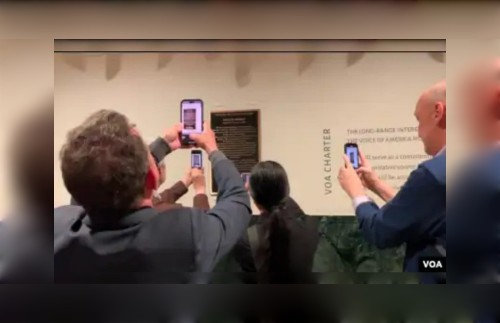By Tommy Walker

2021 was a year of dramatic changes for Hong Kong’s media scene, as the city adjusted to life under Beijing’s national security law.
Journalists have been detained, the pro-democracy news outlet Apple Daily was forced to close, and visas for foreign correspondents were delayed or, in one case, denied.
It’s a stark change for a city that was once a model for press freedom and where anti-government protests were covered freely by local and international reporters. Those same protests led to Beijing’s pushing through the law, which bans secession and collusion with foreign forces.
Journalists’ associations, including the Foreign Correspondents’ Club (FCC) in Hong Kong, are concerned about its impact. The FCC annual survey of members found that 84% believe conditions have changed for the worse since the law came into effect. About 34% said they were thinking of leaving Hong Kong because of the decline of press freedom.
‘We can never get back’
Ronson Chan, chair of the Hong Kong Journalists Association and a senior editor at news website Stand News, told VOA in late December that 2021 has been the “saddest year” for Hong Kong’s media and that next year will “not be easy.”
“We never can get back. Hong Kong has changed,” Chan said. “Freedom of press has many red lines.”
Maintaining a free press in Hong Kong was the best way to differentiate between the city and China, Chan said, adding that it is “important for the Hong Kong people to still have a good media.”
But the veteran journalist said, “We still have a very critical situation.” He cited proposals for a law banning false news for next year, billed by authorities as part of a drive against the dissemination of misinformation.
Hong Kong Chief Executive Carrie Lam has repeatedly said that press freedom is guaranteed under Hong Kong’s Basic Law and has denied that the arrests and the closure of Apple Daily were an attack on the media. She said journalists have a responsibility to not break the new law.
Changing environment
Even before the National Security Law came into effect, Jimmy Lai, the billionaire founder of pro-democracy newspaper Apple Daily, was having doubts that his outlet would survive.
In 2021, those concerns were realized.
In June, Apple Daily was forced to shut its doors after more than 25 years, when several executives were charged under the security law and the outlet’s financial assets were frozen, leaving the company unable to pay its vendors and staff.
Lai has spent over a year in prison, convicted for his role in anti-government protests. This month, he was sentenced in a separate case to 13 months in prison for taking part in a banned Tiananmen Square vigil, and he is awaiting trial in a third case, for charges under the national security law that could result in a life sentence.
As Apple Daily closed, political analyst Joseph Cheng told VOA it was a “sad day for Hong Kong” and added there is “not much” freedom of the media in the territory.
The city’s public broadcaster, Radio Television Hong Kong (RTHK), also underwent changes that led critics to question its editorial independence.
Under the newly appointed director, Patrick Li, the broadcaster removed some shows, saying they had exhibited bias; removed part of the station’s online archive; and gave Lam a regular show to discuss Beijing’s electoral reforms for the city.
RTHK employees, who spoke with VOA earlier this year on condition of anonymity for fear of retaliation, said they believed executives were trying to erase Hong Kong’s history. And critics condemned the decision to provide Lam a show, suggesting that RTHK was empowering propaganda.
RTHK’s communications team has pushed back against the criticism, telling VOA earlier that the broadcaster is editorially independent “as stipulated in the charter.”
Contracts for at least two of the broadcaster’s journalists were not renewed, including Nabela Qoser and former RTHK producer Bao Choy.
Questioning of Lam
The broadcaster had received complaints from pro-government figures about Qoser’s confrontational questioning of Lam at the height of the anti-government protests.
In Choy’s case, a court this year found the producer guilty on two counts of obtaining public data illegally. Choy had used vehicle registration data for an award-winning RTHK documentary that investigated the response from Hong Kong police to attacks against pro-democracy protesters in 2019.
Choy criticized the current environment, telling VOA the authorities are “using the law to suppress press freedom.”
Journalists wanting to access public databases similar to the ones Choy used will face more obstacles after Hong Kong’s Land Registry and Companies Registry updated their terms.
Users must now supply details such as their Hong Kong identity number and the reason for the search when conducting public information searches.
Several journalists have said they fear that authorities may use the data against them.
The Hong Kong Journalists Association has warned that such policies risk damaging press freedom. But in recent months it has come under pressure.
Hong Kong Secretary for Security Chris Tang and Police Commissioner Raymond Siu Chak-yee both remarked that the association makes it easy for applicants to obtain media status, and that it has biased views and favors pro-democracy news organizations.
The changes in Hong Kong reflect a wider crackdown by China on the press, according to a December report by media watchdog Reporters Without Borders (RSF).
China is the world’s biggest captor of journalists with 127 currently detained. RSF also identified 10 key factors in media suppression, including censorship and propaganda pressure, and increased difficulty for foreign press in securing visas.
This trend appears to be filtering into Hong Kong.
Last month, Sue-Lin Wong, China correspondent for The Economist, was denied a work visa renewal in Hong Kong, without a reason.
No exceptions seen
“I think whatever the reason, kicking out an Economist correspondent means they would expel anyone from any organization,” one international journalist based in Hong Kong told VOA, requesting anonymity.
Eric Wishart, a veteran journalist and co-convener of the press freedom committee at the Foreign Correspondents Club, told VOA earlier this year that journalists are left uncertain about what will get them in trouble with the authorities.
“We talk about the ‘red lines’ in Hong Kong, but the paint is still fresh,” Wishart said. “It is a changing landscape, and that is a big, big challenge for everybody.”
VOA NEWS


















